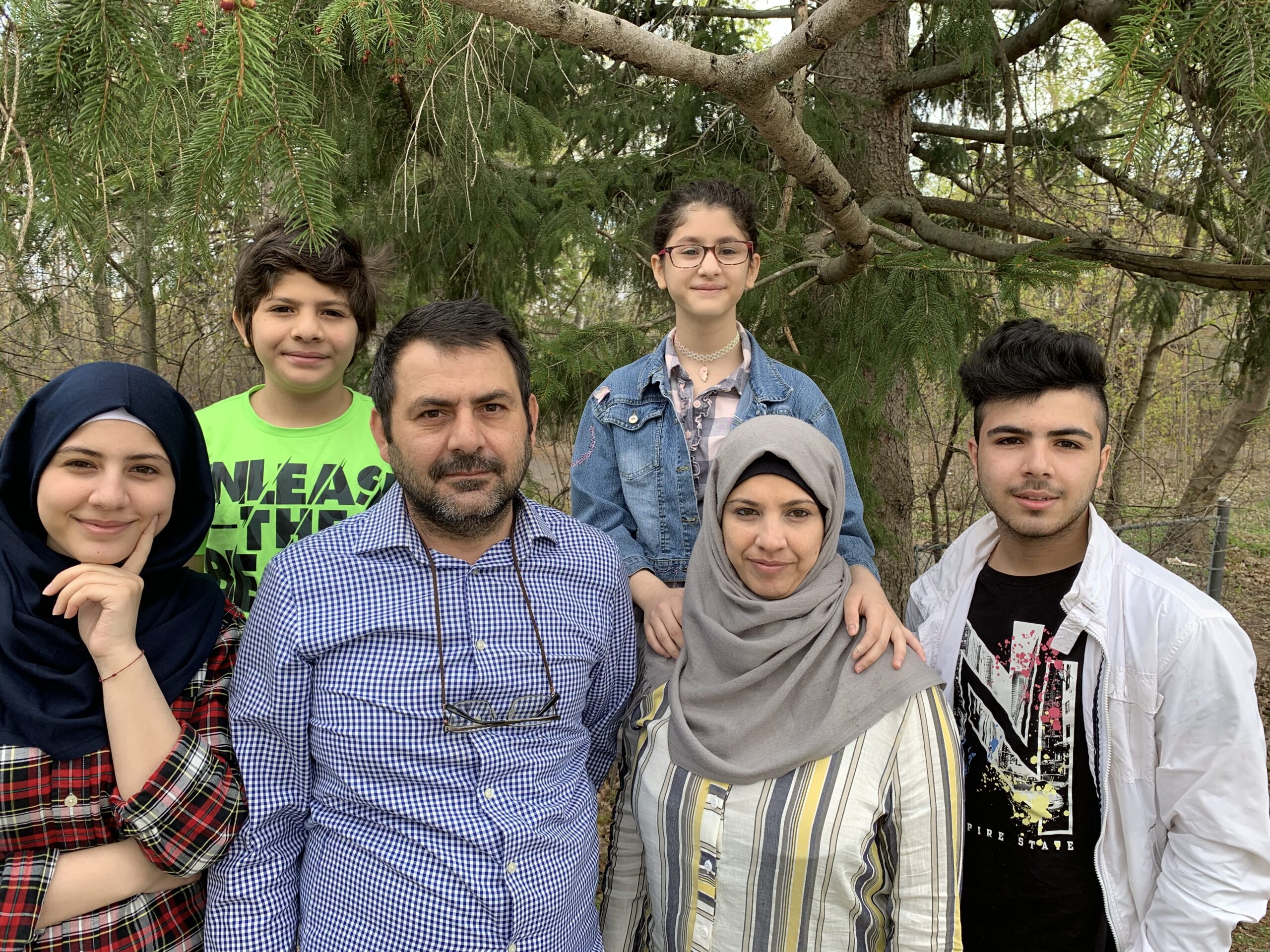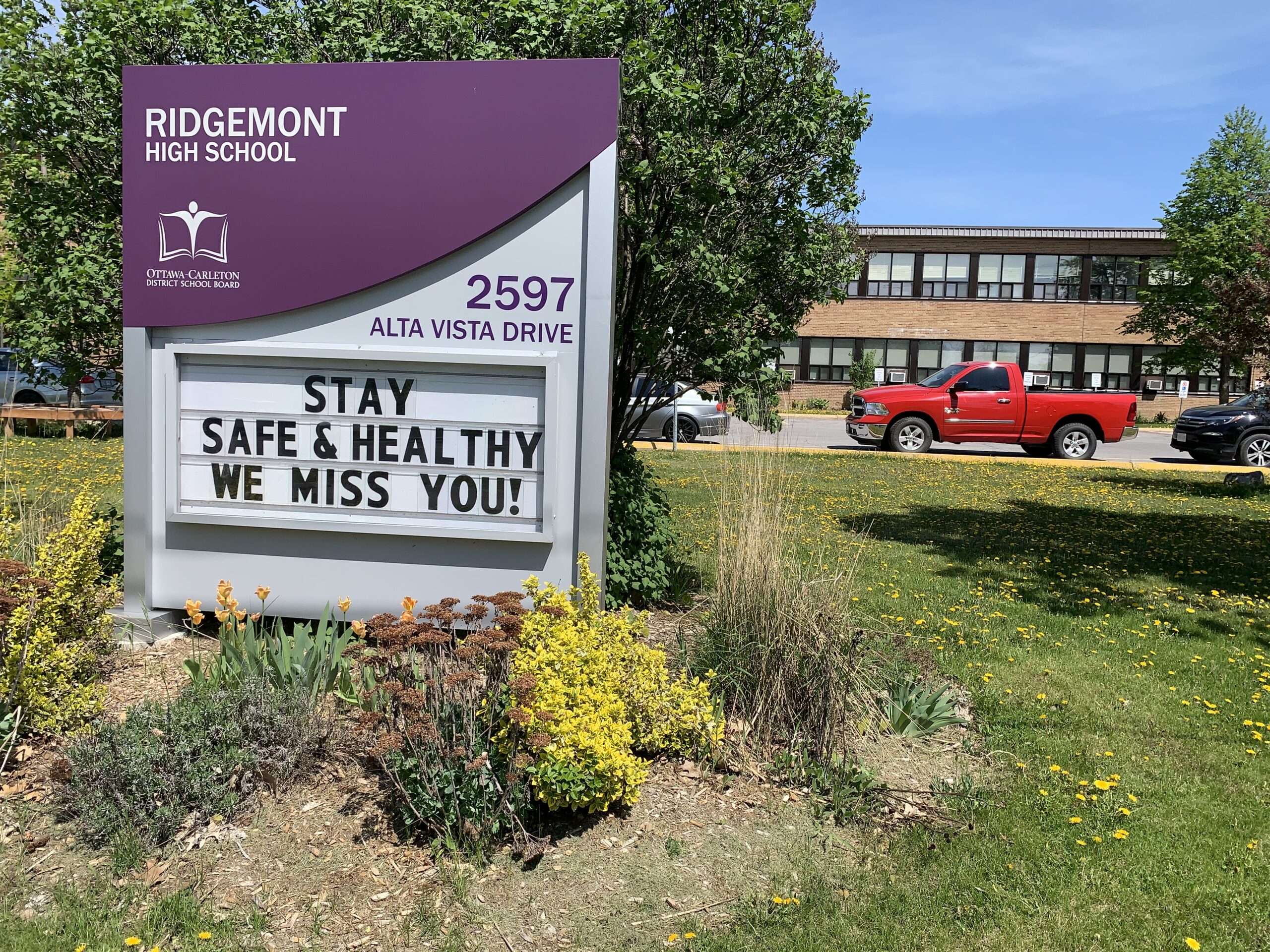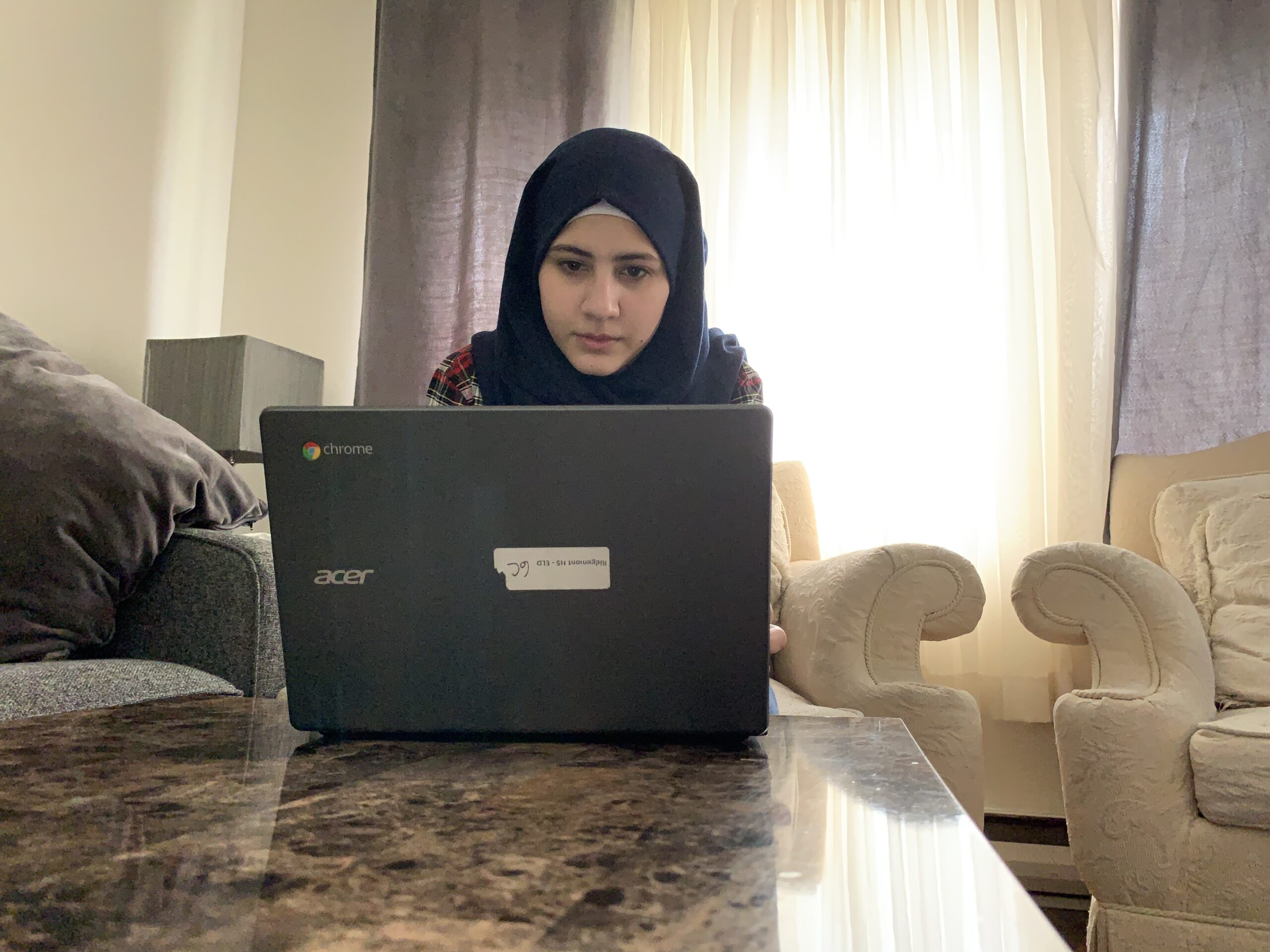For years Aya Abou Rshd dreamed of returning to school, of reading books and writing stories. Of holding a pencil in her hands to calculate math equations. She made it to grade four before her life in Damascus was decimated, before the Syrian civil war announced its arrival in her neighborhood with a bombing on her street. She remembers her family of six squeezing their bodies into a bathtub as the windows in their home shattered around them.
That was in 2011, and it would be another eight years before Aya would set foot in a school again, only to have her academic pursuits derailed by the global COVID-19 pandemic.
“I miss my friends and I miss my teachers,” said Aya in an interview outside her home in Ottawa. “It’s boring.”
The 18 year-old arrived in Canada last September after her family was sponsored by a community group. Within two weeks, Aya and her three siblings were enrolled in school. After years of turmoil, their first months in Canada took on a comforting rhythm. In the morning, her parents would walk her younger siblings, Hala and Ibrahim to their elementary school, while Aya and her older brother Ahmad, 20 would take a bus to their high school. After classes, Aya would hang out with friends at a nearby mall, sometimes indulging in an “ice capp” from Tim Hortons.
This routine ended seven months after their arrival. The Ontario government shut down schools to contain the coronavirus on March 13, just as Aya was learning about the states of matter in science class.
Aya’s father, Emad, gets emotional talking about the impact of COVID-19 on his family. The coronavirus makes him feel as though he’s gone backward in time. He’s already spent years in lockdown.
Progress stalled
“I feel like when I live in Lebanon. I lived there for three years. I couldn’t go out and now it’s the same,” says Emad in short, simple sentences. When the words don’t come, he looks upward and makes small sweeping motions with his open hands as if to draw the missing words into his body. When the words don’t materialize he resorts to Google translate on his phone.
Syria’s civil war forced the Abou Rshds into a life of transience. They relied on relatives and friends to take them in, and took shelter in abandoned buildings only to be chased away by more shelling and gunfire as battlefronts moved. After military forces attempted to recruit Emad’s teenage son, the family fled to Lebanon in 2016, where their lives were confined to a one bedroom apartment for three years. Unable to secure official United Nations refugee status they were considered “illegals,” and if caught by Lebanese authorities the family would have been sent back to Syria.
In Ottawa, Emad is able to go for long bike rides and quick visits to the grocery store, but life feels directionless.
“I just want to go,” says Emad, thrusting his right arm forward, referring to a future that’s once again on hold.

Laptop lifeline
While other provinces closed schools indefinitely, the Ontario government used the pandemic to fast forward its goal of introducing more online learning into the curriculum and shifted all its elementary and high school students to virtual classrooms for the remainder of the academic year.
In March, the government set up a Learn at Home web portal, but thousands of disadvantaged students including the Abou Rshds couldn’t access the curriculum because they didn’t have computers or tablets at home. In response, the Ministry of Education directed school administrators to loan out their classroom laptop computers.
One month after the lockdown began, more than 200,000 chromebooks and I-pads were couriered to students, along with thousands of free Wifi hotspots.
Three chromebooks were delivered to the Abou Rshd family just before Ramadan started. One was to be shared between the younger kids, while the older siblings each got their own computers. For the first time in weeks, they were able to see their friends over Google Meet video calls, while their teachers used virtual classrooms to check-in on how they were coping.

Aya and Ahmad take grade 9 courses at Ridgemont High School. Of its 800 students, 65% are refugees or new immigrants. Ridgemont is located in one of the poorest zip codes in Canada’s capital. The school acts as a central hub for newcomer families and where they first turn to for information about city health programs and directions to the food bank. Principal Rachelle Sintic, says it was important for Ridgemont to continue providing this information during the pandemic.
“A student’s well being is number one right now, if the well being isn’t taken care of – the academics can’t really happen.” Sintic wants her teachers to flag student concerns that come up during online meetings so Ridgemont’s multicultural liaisons can help.
“I know that a lot of our kids don’t live in a large space and have quite a few siblings. I worry about the amount they can focus on their work, versus the amount of support they need to give their own parents to help out with siblings,” said Sintic.
When technology doesn’t translate
Heather Carmichael, 42 is a teacher at Sawmill Creek Public School where Aya’s younger brother and sister are enrolled. Carmichael teaches a special English Literacy Development class for a small class of grade eight refugee students. Some of her students have never been in school. They couldn’t read in their first language. Some didn’t learn how to count.
“You need to go that extra mile to make them feel safe, valued and supported,” said Carmichael, but that’s not easy to do over the Internet. She’s found virtual learning a vexing and plodding process that loses much in translation.
“(Pre-pandemic) if I want to show them a website I would project it onto the white board and walk them through it and they would open their chromebooks and follow along. But now they’ll log on to a website and they can’t read what the buttons are saying and don’t know what to click.”
With COVID-19, Carmichael has had to find creative ways to explain hard to grasp concepts. Recently, she posted a video of herself making an apple crumble in her virtual classroom. While talking about preheating the oven, she introduced the concept of prefixes and suffixes. She used a measuring spoon to segue into discussing fractions, then she asked her students to post their own cooking videos to practice speaking English.
Carmichael’s students all have different levels of understanding so teaching them all at once doesn’t work. During the pandemic she’s asked her students to sign up for a thirty-minute block each day so she can work with them individually or in pairs. It won’t be enough to cover the full curriculum.
Gaps in learning
“It’s going to set everybody back in September. There will be gaps,” says Tim Pearson, Sawmill Creek’s principal. “Even though we are doing learning at home, there is no way we can cover the full curriculum because we’ve missed all this time in class. Learning at home is no substitute for the quality of education (students) can receive in a classroom.”
The Ottawa-Carleton District School Board is planning for a hybrid model that blends classroom instruction with online learning when school resumes in September. Half the students attend school on Monday and Tuesday while Wednesday is reserved for deep cleaning. The other half of students attend classes on Thursday and Friday.
Pearson says he is confident his teachers will be able to meet students where they’re at in the fall, and bring them up to speed with the new online skills they have learned during the lockdown. He says his teachers have used a variety of apps from FlipGrid to GoogleMeet to YouTube lessons to connect with students, and that they will continue to use those new technical skills when they return to the classroom.
As for the newcomer students who make up one third of his school, Pearson is confident in their resilience and their ability to overcome adversity.
“We have to remember that these are families that we can learn from. They are survivors. They have lived in refugee camps and their circumstances were dire… These newcomers are better prepared to deal with the pandemic than we are.”
Back at home, the borrowed school laptop, which she gets to keep until September, has given Aya a renewed sense of purpose. She helps her parents set up Zoom video calls with their Canadian sponsors so they can practice reading and conversing in English. Having passed her high school courses, she’s now trying to apply for a summer job online. In the future she hopes to become a journalist or perhaps a lawyer, but for now she’s looking forward to catching up with friends over ice-capps while standing two metres apart.
This story was also featured by the Huffington Post: Syrian Refugee’s Education Was First Derailed By War, Then The COVID-19 Crisis.
Judy is an award winning journalist with two decades of journalism experience who aims to be critical, yet compassionate in her reporting. She has reported extensively for CBC News on television and radio and has produced documentaries for CBC's flagship investigative program, The Fifth Estate. Judy has written for the Globe and Mail, the Toronto Star and the Ottawa Citizen. She has also been nominated for two Canadian Screen awards for breaking news and a National Magazine Award for an Ottawa Magazine expose of a child trafficking ring. She has reported extensively on the #MeToo movement and human rights cases, and filed LIVE breaking reports from disaster zones. She is also NCM's Chief Mentor.





